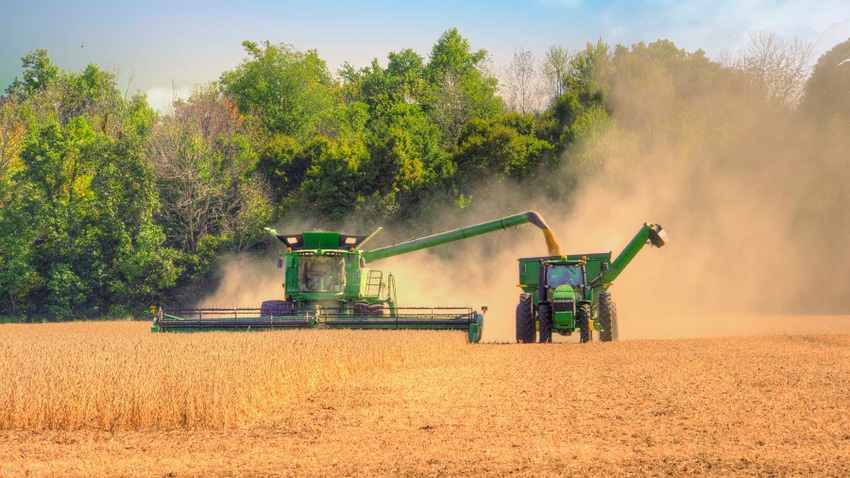
What is the best method to sell or transfer farm equipment is one of the more popular questions – and most perplexing dilemmas – for many retiring farmers.
This was the case for Gary, an 85-year-old farmer seeking an exit strategy from farming. If you’ve followed this series, you know that a heavy tax burden from retiring was a difficult barrier for him doing so.
Understand the basics
For starters, let’s review some of the basics. When equipment is sold, it is treated as ordinary income. Even when traded, it is treated as a sale, and an entirely separate transaction from any new equipment purchased as a replacement. This is part of Gary’s dilemma, as he wants to stop purchasing new equipment.
The potential income tax you pay is based on how much depreciation you’ve taken and what tax bracket you file in. Since most farmers use section 179 to fully depreciate the equipment (for tax purposes), in most cases the entire sale of equipment is subject to income tax recapture.
Options to transfer equipment ownership
As I’ve mentioned before, I’m not a certified tax professional, but have worked with enough farmers and their respective tax advisors to know the options. For some, this is a hurdle in itself, so often times I start this conversation by simply brainstorming these options to help determine the most suitable one for your situation.
Sell outright
Some may argue having a sale and selling the equipment outright is the simplest and easiest. Before doing so, work with your tax advisor so you understand what your actual net proceeds will be after income tax recapture. For many, this is alarming and leads to brainstorming other options.
Sell on contract
I wish it was as easy as setting up a 10-year contract and spreading the income tax liability as payments are made. This works well for capital gain assets such as land or stock of a corporation. However, the income tax from the sale of equipment must all be recognized at sale, regardless of the timing and terms of the transaction.
Lease to own
Some have set up a lease or rent to own arrangement like an equipment dealer. Work with your tax professional, as it’s particularly important this be an arm’s length transaction, and not a disguised sale. However, if structured properly, in theory you can spread the income tax burden through the annual lease payments and have much less of a tax event on the final buy-out.
Gradual transition
Perhaps the most common transition between family is a gradual transition over a period of years. Consider getting the next generation more involved in the business first, and as more of the income and cash flow transitions, they will be in a stronger financial position to begin purchasing equipment when it comes time to trade.
Entitize
You can restructure the ownership of the equipment to an entity such as a limited liability company. This can create more flexibility to facilitate a gradual transition via gift and/or sale of entity membership “units” rather than outright pieces of equipment. Some have gone so far to set up the entity to be taxed as a corporation. As noted above, corporation “stock” can in fact be sold on a contract and treated as capital gain, not ordinary income.
Gift
To help get the next generation more involved, you can gift the trade-in value as it comes time to trade. Keep in mind, the trade-in likely will be treated as a sale as noted above. Or, if you don’t necessarily need the equity from the equipment, some have used part of their lifetime gift exemption to make a larger gift of the equipment, tax free. Now, your successors will have the equity in the equipment to better position them to trade.
Charitable gift
If you are charitable minded, you can also gift equipment to a charitable trust. The trust sells the equipment and is exempt from paying income tax since they are a charitable entity. You are the income beneficiary of the trust and can receive periodic payments for a certain time period or your lifetime, much like a retirement distribution. Typically, a certain minimum is set aside to preserve going to the charitable organizations you stipulate.
What if you do nothing?
Our current tax laws incentivize doing nothing since as you pass depreciated assets through your estate, they receive a new adjustment in cost basis. Many refer to this as a step-up in basis. Although we generally favor more pro-active strategies, we do encourage folks to “back-stop” their estate plan by giving the farming heirs an option to purchase equipment and other farm operating assets from your estate. This is commonly done using a contract buy-out since income tax recapture is no longer a concern.
Non-family successor
We are increasingly working “non-family” transitions. Gary is part of an expanding group of producers who don’t have children who actively farm. However, he’s identified a young farm producer to transition his operation to, who will work with Gary’s family heirs on the rental of the farmland in the future.
Gary likely will create what we call a “hybrid plan,” and use a combination of the strategies listed above. Doing so, by the way, will save him an estimated $500k income tax event if he simply sold it all at a farm sale!
This is part five in a series. Read the other articles here:
Downey has been helping farmers and landowners for the last 23 years with their family farm transition, estate planning, leasing strategies, and general farm advising. He is the co-owner of Next Gen Ag Advocates and founder of Farm Raised Capital. Reach Mike at [email protected].
About the Author(s)
You May Also Like






